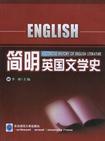简明英国文学史
出版时间:2007-11 出版社:东北师范大学出版社 作者:李增 著 页数:218
前言
The idea of compiling a history of English literature emerged in my senior composition class of more than twenty years ago. An American professor assigned a topic to us as to "What Dream You Want to Fulfill in the Future". Somehow I wrote the idea into the composition, though by then I had only read two books of English literary history, one by Professor Chen Jia and the other by Professor Liu Bingshan. Now when I look back at the idea I realize that it was too ambitious, deriving from a childish impulse rather than a rational consideration. However, I remember I took the assignment with such sincerity and affection that the composition turned out to win a high appraisal from the professor. After graduation, the idea faded from my memory due to the heavy teaching and research work. Although I had been teaching the course of English literature, I almost completely forgot that dream. Occasionally, the idea flashed into my mind, but it was soon overwhelmed by the other important sundry duties. With the arrival of the twenty-first century, perhaps because of the increasing age, the idea was revived so strongly that it was hard to impel it from my mind. It was just at this time that the Northeast Normal University Press came to me and asked if I could compile a history of English literature with the undergraduates of English major as the main target. I suddenly realized it was a golden chance which I couldnt afford to lose. Instantly, three passions, simple but overwhelmingly strong, had governed my mind: the longing for illuminating my accumulated experiences over the years, the search for a different and better textbook to facilitate my literature teaching, and the unbearable pity for my long-buried youth dream. Therefore I accepted the task without any hesitation or reserve, though at once I-felt greater pressure and challenge. Over twenty years ago, only two books of English literary history were available to the students of English major; But nowadays, dozens of books of this type in various styles have flooded into the market, and there are still more to come. And the books written by foreign authors are not difficult to find. In such a situation, to compile a new book which differs largely from those previous ones will surely become a very difficult and complex task. However, I have managed to work out some principles or features which might distinguish the book from the others.
内容概要
Over twenty years ago, only two books of English literary history were available tothe students of English major: But nowadays, dozens of books of this type in variousstyles have floodedinto the market, and there are still more to come. And the books written by foreign authors are not difficult to find. In such a situation, to compile a newbook which differs largely from those previous ones will surely become a very difficultand complex task. However, I have managed to work out some principles or featureswhich might distinguish the book from the others.
书籍目录
Chapter One English Literature from the Sixth Century to 1066Chapter Two English Literature from 1066 to 1485Chapter Three English Literature from 1485 to 1640Chapter Four English Literature from 1640 to 1688Chapter Five English Literature from 1688 to 1798Chapter Six English Literature from 1798 to 1832Chapter Seven English Literature from 1832 to 1900Chapter Eight English Literature from 1900 to 1950
章节摘录
Ⅰ. Historical Contexts 1. The Revolution Charles I ruled England without Parliament between 1629 and 1640.For this duration, the King of England, Charles I waged a long-term war on Scotland, which made a Parliament necessary again so that he re-called Parliament. Things went contrary to his wishes since there were many fightings between the Parliament and the King and finally led to war between two sides. As a result, Parliament won the war and decapitated the king. England kept a republic till 1660 when the monarchy was restored. The previous Parliament had been dissolved due to its refusal to fund the kings war but later a new one was called to collect money to support his war against the Scots.The Long Parliament (session of the English Parliament summoned in November 1640 by King Charles I; it has been so named to distinguish it from the Short Parliament of April--May 1640) would offer aid on condition that Charles I agreed to reform, like taking away power from the Kings royal courts, insuring that the Parliament would decide whether or not it would be dissolved and that sessions of the Parliament must be held at least onceevery three years. In 1641, the Catholics in Ireland rebelled against British rules.Charles I and the Long Parliament reached an agreement to finance the war as long as they were in control of it. The Scots took sides with the Parliament in 1643 after it promised the Scots to establish Presbyterianism as the state religion. Charles I with his forces was defeated and he was exiled by the Parliament.
图书封面
评论、评分、阅读与下载
